There are few purchases in life as deeply personal, transformative, and enduring as selecting a piano. Whether you are a novice taking your first steps into the world of music or an experienced pianist seeking a worthy companion for your craft, choosing the perfect piano is not just a decision—it’s a journey. A piano is more than an instrument; it’s a timeless heirloom, a vessel of emotion, and a reflection of the values you hold dear. Let us guide you through this process so you can find the perfect piano that resonates with your aspirations and becomes an enduring part of your life. A well-chosen piano can be the centerpiece of a home, a source of inspiration, and a vehicle for creative expression. The journey of selecting one isn’t merely about finding a suitable instrument but about embracing a legacy, a tradition, and a commitment to the art of music. Let’s explore the facets of this significant decision in detail
Understanding Your Purpose and Goals
Before diving into the technicalities, pause to reflect on why you want a piano. Is it for personal enjoyment, professional performance, or a gift to a budding musician in your family? Each purpose will shape your decision:
For Beginners:
- Seek an instrument that inspires regular practice and fosters skill development.
- Focus on affordability and durability without compromising on sound quality.
Beginner pianos are about simplicity and encouragement. They don’t just teach you music; they introduce you to the discipline and joy of playing. Look for features like weighted keys that mimic the feel of acoustic pianos.
For Professionals:
- Prioritize sound precision, touch response, and craftsmanship.
- Consider pianos with a rich tonal palette and superior dynamics.
Professional-grade pianos are designed to capture the nuances of every performance. They allow for dynamic expression and technical finesse. These pianos often become integral to a performer’s identity.
For Families:
- Look for an instrument that balances aesthetics, size, and versatility.
- Aim for a durable piano that can withstand years of use.
In family settings, pianos often become a shared treasure. They are a medium for bonding, education, and entertainment, creating a musical heritage for generations.
By clarifying your goals, you set the stage for a thoughtful and rewarding selection process.
Exploring the Types of Pianos
Pianos come in various forms, each with its unique character, advantages, and challenges. Understanding these differences will help you narrow down your options.
Acoustic Pianos
Grand Pianos:
- Why Choose: Grand pianos are the epitome of elegance and performance. Their larger soundboards and longer strings produce unparalleled tonal richness.
- Perfect For: Professionals, performance spaces, and individuals who value aesthetic and auditory excellence.
- Key Variants: Baby grand (smaller footprint) to concert grand (full range of tonal depth).
Grand pianos are often seen as symbols of luxury and sophistication. They not only elevate your music but also the ambiance of any space they occupy.
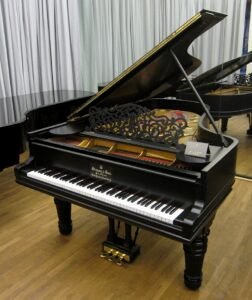
Upright Pianos:
- Why Choose: Ideal for homes and smaller spaces, upright pianos offer excellent sound quality in a compact design.
- Perfect For: Beginners, casual players, and those with space constraints.
Upright pianos are workhorses of the piano world, providing reliable performance without demanding significant space. Their adaptability makes them a popular choice.

Digital Pianos
- Why Choose: Combining portability with modern technology, digital pianos offer features like headphone connectivity, recording capabilities, and various sound presets.
- Perfect For: Beginners, tech enthusiasts, and those needing a space-saving or budget-friendly option.
Digital pianos are innovative, bridging traditional piano playing with the flexibility of modern features. They are perfect for tech-savvy musicians and those exploring new creative horizons.
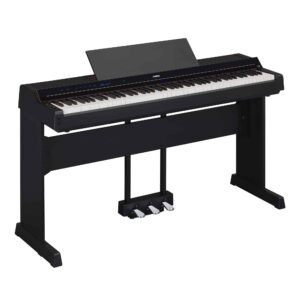
Hybrid Pianos
- Why Choose: Merging the best of acoustic and digital worlds, hybrid pianos provide authentic key action with the flexibility of digital features.
- Perfect For: Versatile musicians who desire both traditional and modern benefits.
Hybrid pianos represent the pinnacle of innovation in piano design, offering unparalleled versatility without compromising on playability or sound quality.
Key Factors to Consider
Choosing the right piano involves examining specific features that influence its sound, playability, and longevity.
1. Sound Quality
Every piano has its distinct tonal character, influenced by its design, size, and materials. Spend time listening to various pianos to identify a tone that resonates with you—bright, mellow, or balanced.
Sound is the soul of a piano. Whether it’s the sonorous bass or the crystal-clear treble, the voice of the instrument should inspire you every time you play.
2. Touch and Feel
- The responsiveness of the keys is critical for an enjoyable playing experience.
- Test the key action to ensure it feels natural and supports your playing style.
The touch of a piano defines the connection between you and the music. Weighted and balanced keys are crucial for accurate expression and technique development.
3. Size and Space
- Measure your room dimensions and visualize the piano’s placement.
- Ensure adequate space not just for the instrument but also for seating and optimal acoustics.
A piano should complement its environment, harmonizing with the space both acoustically and aesthetically.
4. Budget
- Determine a realistic budget that aligns with your goals.
- Consider additional costs like tuning, maintenance, and accessories.
Investing in a piano is as much about value as it is about price. Weigh the benefits of quality craftsmanship against your financial limits.
5. Brand and Craftsmanship
Renowned brands like Steinway & Sons, Yamaha, and Kawai have a legacy of quality and innovation. Investing in a reputable brand often ensures durability and superior performance.
Explore the history and philosophy of different brands. Each brings unique characteristics that could align with your vision of the perfect piano.
6. Future Needs
Think long-term. As your skills or family needs evolve, will the piano still meet your expectations?
A piano is not just for today but for the future. Envision how it will grow with your musical journey.
The Emotional Journey of Piano Ownership
A piano is more than an object; it’s a partner in your creative expression. Imagine:
- The first note: A resonant tone that fills the room, awakening a sense of pride and accomplishment.
- The shared moments: Family gatherings, holiday sing-alongs, and heartfelt performances that bring loved ones together.
- The personal growth: Hours of practice transforming into mastery, with your piano standing as a witness to your dedication.
Owning a piano is an investment not only in music but in the memories and milestones that will define your life.
Every performance, no matter how modest, becomes a celebration of art and perseverance. The piano is a silent partner in these moments, amplifying joy and easing sorrow.
Where to Buy Your Perfect Piano
Choosing where to purchase your piano is as crucial as selecting the instrument itself. Consider:
Authorized Dealers:
- Offer certified instruments, warranties, and expert guidance.
Showrooms:
- Allow you to experience the instrument firsthand.
Showrooms provide a tactile and auditory experience, allowing you to test various models under professional guidance.
Online Retailers:
- Provide convenience and often competitive pricing. Ensure the retailer has good reviews and return policies.
Online options are growing in popularity but require careful research to ensure authenticity and quality.
Second-hand Markets:
- Can be cost-effective but require thorough inspections by a professional technician.
Second-hand pianos often come with history and character, but due diligence is necessary to avoid hidden pitfalls.
Caring for Your Perfect Piano
A piano’s longevity and performance depend on proper care:
- Regular Tuning: Maintain optimal sound quality by tuning at least twice a year.
- Temperature and Humidity Control: Protect your piano from extreme conditions to avoid damage.
- Cleaning: Use a soft, dry cloth to clean the keys and exterior. Avoid harsh chemicals.
- Professional Servicing: Schedule periodic checkups to ensure the internal components are in good condition.
Proper maintenance not only preserves your piano’s functionality but also enhances its beauty and resonance over time.
Conclusion
Choosing the perfect piano is a profound and rewarding endeavor. It is not merely about acquiring an instrument but embracing a lifelong companion that enriches your life through music. As you embark on this journey, remember that every note played is a step toward creating a legacy—a privilege reserved for those who appreciate the artistry and wonder of the piano.
Your piano awaits—a timeless treasure, a symbol of refinement, and a gateway to unparalleled musical joy. Make your choice with pride, and let the music begin.
From the aspiring student to the seasoned virtuoso, the right piano becomes an extension of your soul, a vessel for dreams, and a testament to your passion. May your journey lead you to the perfect harmony of music and life.
For further reading : Piano
For more articles : https://pianopassion.org/


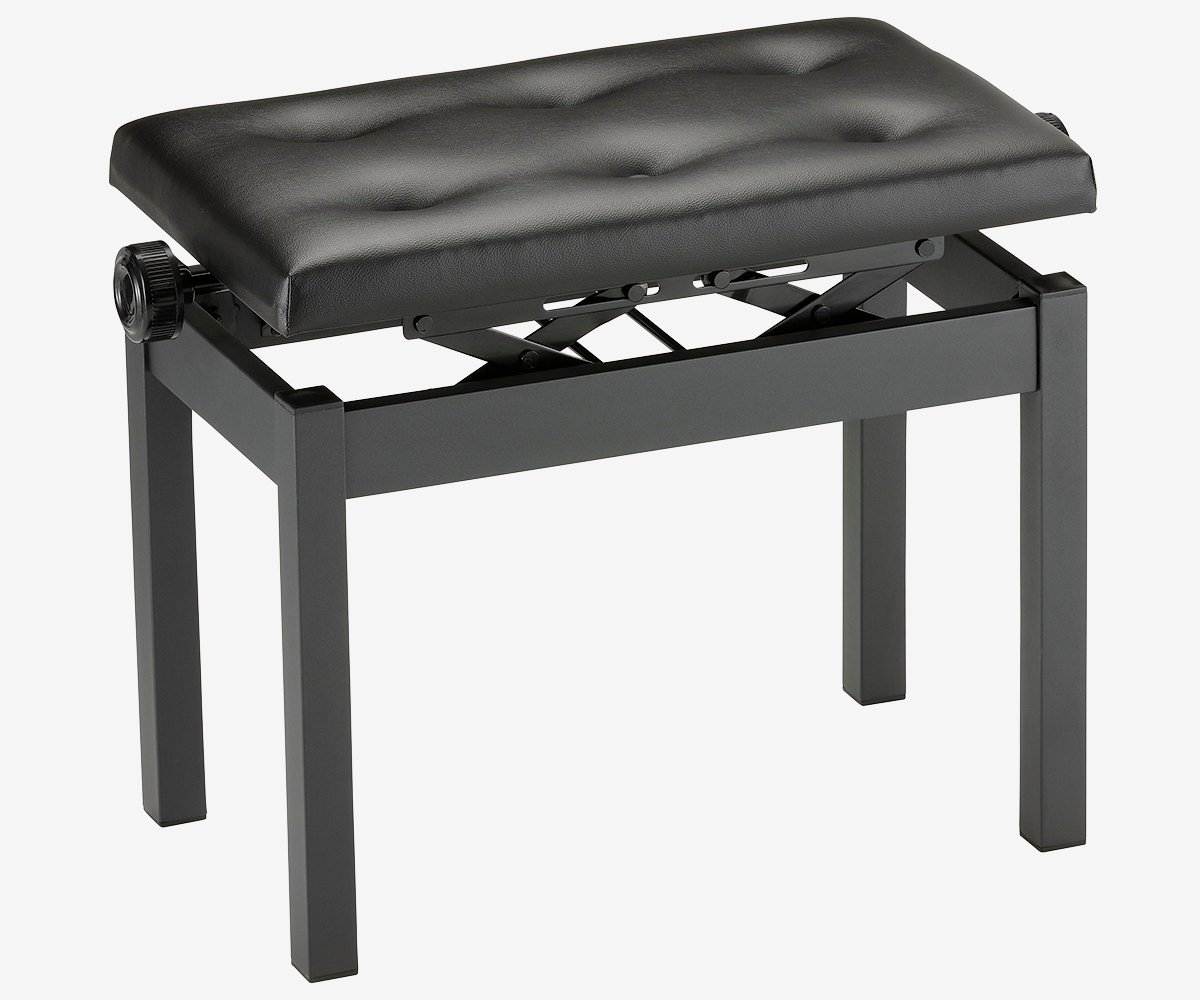
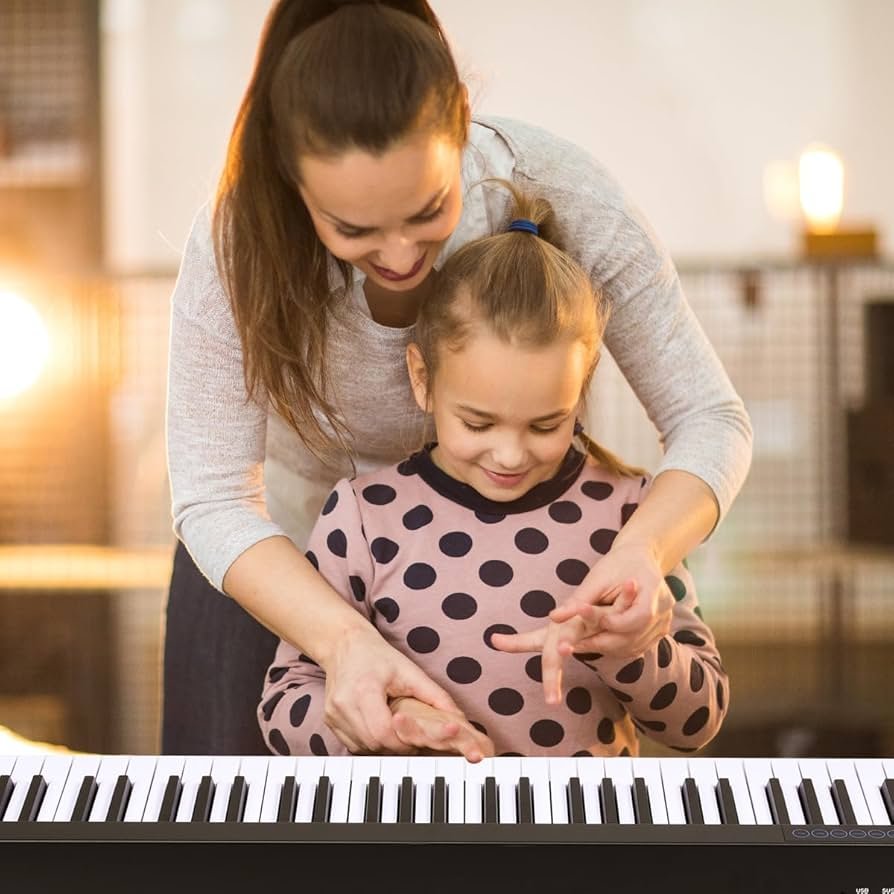

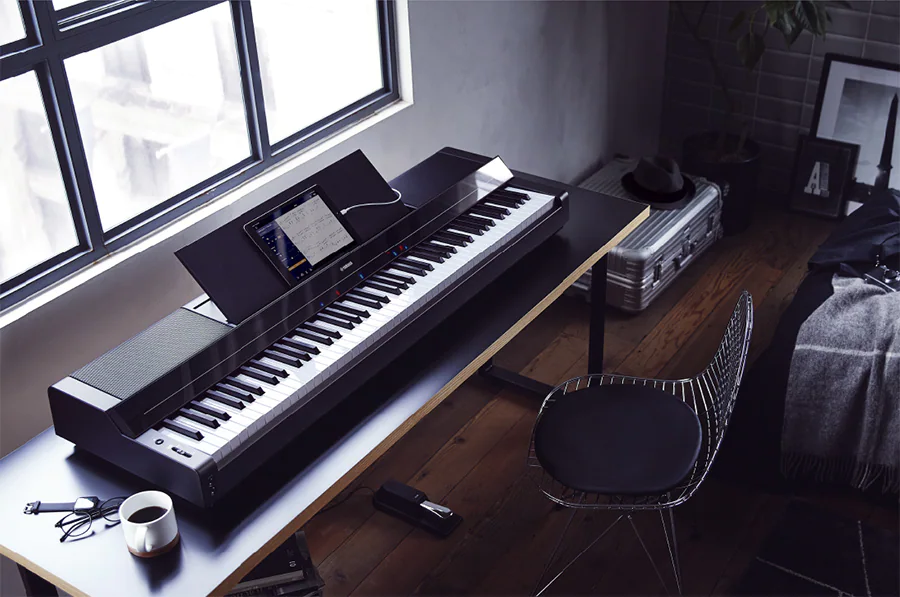
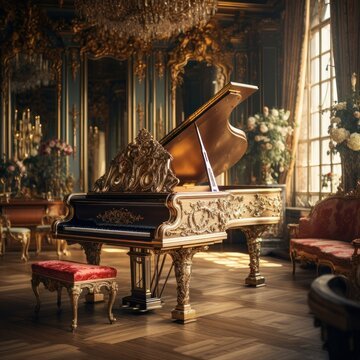

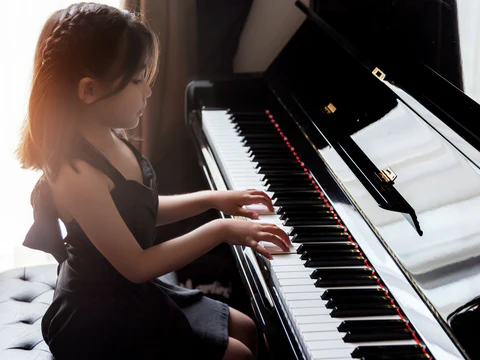





Leave a Reply